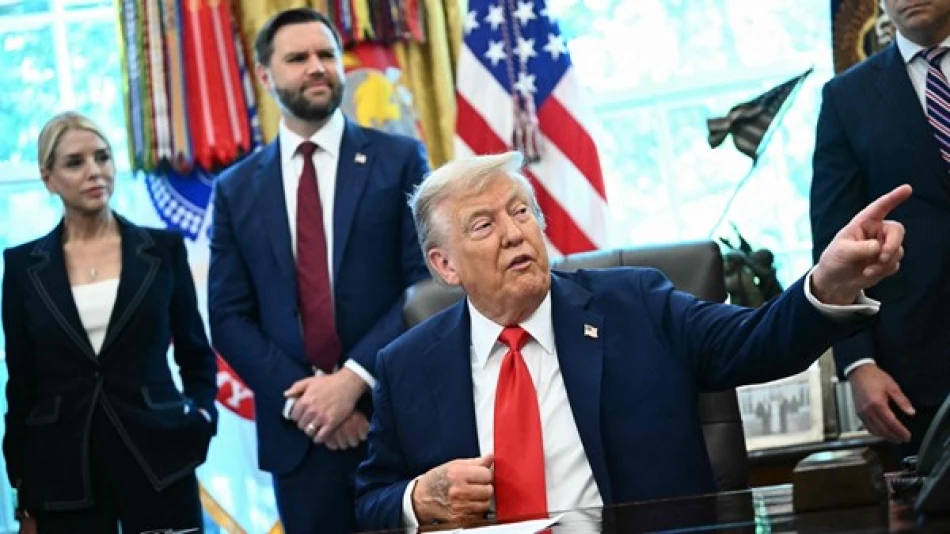
Trump Calls for Imminent Gaza Ceasefire Amid Escalating Conflict
Trump Sets Ambitious Two-Week Deadline for Gaza War Resolution
President Donald Trump has declared that the ongoing Gaza conflict must be resolved "soon," giving a bold timeline of just two to three weeks for what he termed a "good and decisive end" to the war. Speaking alongside Secretary of State Marco Rubio at the White House, Trump signaled an intensified U.S. diplomatic push that aims to eliminate Hamas as a governing force in the territory.
White House Diplomacy Takes Center Stage
Trump's comments, made during a White House briefing ahead of meetings with South Korean leadership, represent one of his most specific public commitments on the Gaza crisis since returning to office. The president emphasized that "very serious" diplomatic efforts are underway, suggesting his administration is leveraging multiple channels to broker a resolution.
Secretary of State Rubio reinforced the administration's hardline stance, stating that any solution must ensure Hamas no longer exists as a governing entity. "It never stopped. We are always seeking to find a solution, or ultimately as the president said, we want it to end with Hamas gone," Rubio declared.
Strategic Implications of the Timeline
Diplomatic Pressure Points
The two-to-three-week timeframe appears designed to create urgency among regional stakeholders, including Israel, Egypt, Qatar, and Saudi Arabia. This compressed timeline mirrors Trump's transactional approach to foreign policy, where public deadlines are used to accelerate negotiations that might otherwise drag on for months.
Historical precedent suggests such aggressive timelines in Middle Eastern conflicts rarely hold, but they can catalyze movement among parties who fear being blamed for diplomatic failures. The approach echoes Trump's first-term strategy with North Korea, where dramatic summit announcements created momentum even when ultimate goals remained elusive.
Regional Power Dynamics
Trump's emphasis on eliminating Hamas aligns closely with Israeli objectives while potentially complicating relationships with Arab mediators who have maintained channels with the organization. This stance could accelerate Israeli military operations in Gaza, as Prime Minister Netanyahu may interpret the comments as American backing for more decisive action.
The timing also coincides with broader regional realignments, as Saudi Arabia and other Gulf states increasingly view Iranian-backed groups like Hamas as obstacles to their own normalization efforts with Israel.
Market and Economic Considerations
Financial markets have shown sensitivity to Gaza-related developments, particularly in energy sectors and regional equities. A definitive resolution—or alternatively, an escalation if diplomatic efforts fail—could significantly impact oil prices, defense contractor stocks, and emerging market investments across the Middle East.
The cryptocurrency market, which often reacts to geopolitical uncertainty, may see volatility as traders position for either conflict resolution or potential escalation if Trump's deadline passes without results.
Challenges to the Ambitious Timeline
Despite the confident rhetoric, several factors complicate Trump's optimistic timeline. Hamas remains entrenched in Gaza's tunnel networks, Israeli military operations continue with no clear endpoint, and civilian casualties have complicated international mediation efforts. Previous ceasefire negotiations have repeatedly stalled over prisoner exchanges, humanitarian access, and long-term governance arrangements.
The administration's success will likely depend on whether it can offer sufficient incentives—or credible threats—to move parties beyond their established positions. Trump's track record includes both diplomatic breakthroughs like the Abraham Accords and stalled initiatives like Israeli-Palestinian peace efforts.
Most Viewed News

 Layla Al Mansoori
Layla Al Mansoori






